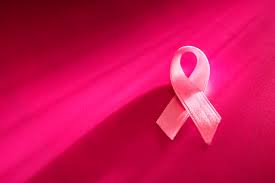‘This life-changing breakthrough is absolutely wonderful news as it could liberate thousands of women from the agony of chemotherapy,’ UK cancer specialist nurse Rachel Rawson said
Most women with early stage breast cancer could avoid the risks of hair loss, infertility, chronic pain and even death that comes with chemotherapy thanks to genetic testing, a groundbreaking US clinical trial has found.
Doctors can now confidently advise thousands more women with the most common type of breast cancer that they can forgo the “agonies of chemotherapy” altogether, without harming their chances of survival, cancer charities said.
Presenting the findings of the largest ever treatment trial for breast cancer, and one of the first to test personalised treatment using a patient’s genetics, the US authors said “the days of uncertainty are over”.
In the UK around 55,000 breast cancer cases are diagnosed each year and around 23,000 are classed as hormone receptor-positive, HER2-negative that this trial focused on.
“Our study shows that chemotherapy may be avoided in about 70 per cent of these women when its use is guided by the test, thus limiting chemotherapy to the 30 per cent of women we can predict will benefit from it,” said lead author Dr Joseph Sparano from the Albert Einstein Cancer Centre in New York.
The UK’s National Institute for Health and Care Excellence (NICE), which decides what treatments the NHS will fund, is currently reviewing its guidance on the Oncotype DX test used in this trial – which has been available on the NHS since 2013.
UK cancer specialists said it was essential that these latest findings be factored into its final report, to ensure women in the NHS are receiving world leading care.
By looking at 21 genetic markers in biopsied tumour cells the Oncotype DX test is able to determine how active the tumour is and give it a score from one to 100 for its risk of spreading elsewhere and returning.
Women whose recurrence score is lowest (10 or below) can be safely started on milder, oestrogen-blocking hormone therapy while those with a score of 26 or above benefit from chemotherapy as well, to wipe out residual cancer cells.
However the majority of women with the disease fall between these two points where the benefits of chemotherapy have been uncertain and treatment decisions are more difficult.
The latest findings, published in the New England Journal of Medicine and simultaneously presented at the American Society of Clinical Oncologists annual meeting in Chicago today, come from a trial of 10,273 women.
Of these, 6,711 fell between the high and low risk recurrence scores and they were randomly assigned to receive either hormone therapy or hormone therapy and chemotherapy as part of the Trial Assigning Individualised Options for Treatment (TailorX).
Over nine years it found no significant differences in disease-free survival (83.3 per cent for hormone therapy vs 84.3 per cent combined), later recurrence (94.5 per cent vs 95 per cent) or overall survival (93.9 per cent vs 95 per cent).
The authors conclude that chemotherapy can be spared in:
All women older than 50 years with hormone receptor positive and HER2 negative breast cancer with a recurrence score up to 25 – about 85 per cent of women in this age group.
All women younger than 50 with a recurrence score of 0 to 15 – about 40 per cent of the women in this age group.
As well as its common side effects, chemotherapy can have life-threatening complications, including the risk of heart failure or leukaemia emerging many years after treatment.
“The study should have a huge impact on doctors and patients,” said Dr Kathy Albain, co-author of the study from Chicago Strich School of Medicine.
“Its findings will greatly expand the number of patients who can forgo chemotherapy without compromising their outcomes. We are de-escalating toxic therapy.
“For countless women and their doctors, the days of uncertainty are over.”
Charities and researchers who were not involved the study agreed the findings would immediately change doctors’ decision-making.
“This life-changing breakthrough is absolutely wonderful news as it could liberate thousands of women from the agony of chemotherapy,” said Rachel Rawson, a clinical nurse specialist with the charity Breast Cancer Care.
“Now we know a greater number of women can safely avoid chemotherapy, it is absolutely vital NICE incorporates this data into its imminent decision on genetic profiling tests.”
“Practically speaking, this means that thousands of women will be able to avoid chemotherapy, with all of its side effects, while still achieving excellent long-term outcomes,” said Dr Harold Burstein of Harvard Medical School.
The Independent
 Lebanese Ministry of Information
Lebanese Ministry of Information



